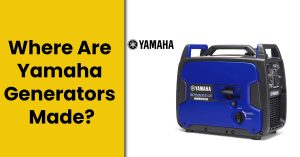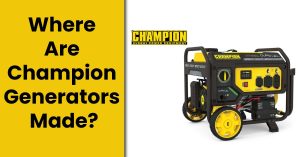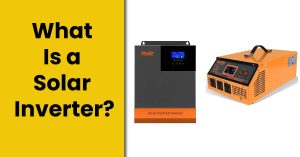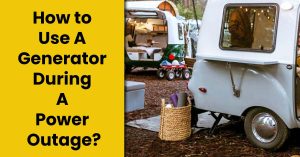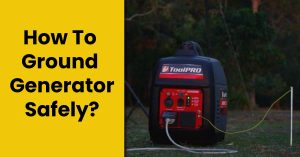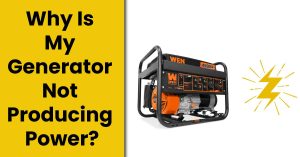Can a Solar Generator Power a House? Learn The Truth
In this article, I have discussed the truth behind the question “Can a Solar Generator Power a House“, what size solar generator is required for a house, and how to calculate the power consumption of a house.
The fact that you reading this article means either there is a power outage problem in your area, the bills are getting heavier, or you are an environmentally conscious person who wants an independent energy solution for your home.
A solar generator is one solution for everything. An inverter, a charger, and a battery are compacted into a single box. It gives great portability and it is reliable in emergencies.
But the question is, can a solar generator power an entire house? Let’s know the truth.
Can a Solar Generator Power a Whole House?
A solar generator can power a house but it is not that simple. You need to calculate the wattage requirement of your house, and most solar generators can power refrigerators, microwaves, pumps, and fans, but powering large appliances like an AC system or water heater requires more wattage.
But before we jump to the recommendations for the solar generator, you have to calculate how many watts are needed for your house.
What Solar Generator Size Do You Need – How to Calculate Wattage?
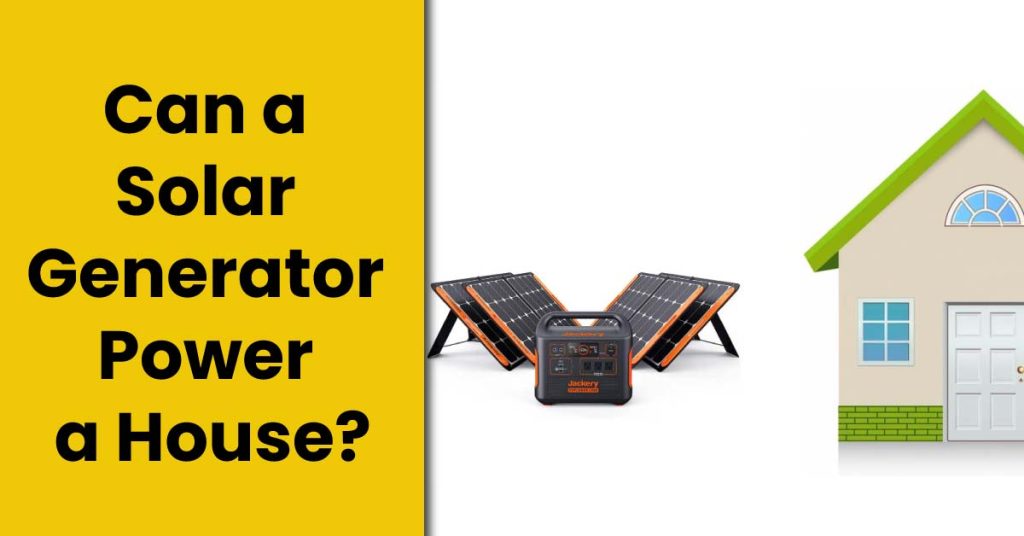
First of all, you need to calculate the total number of watts your house needs every month and add 10 to 15% more to get a general idea about what solar generator size you need.
The formula to calculate watts is:
Watts = Volts x Amps
For example:
Your refrigerator’s label is saying 6 amps and 120V.
Watts = Volts x Amps
= 6 x 120 = 720 watts.
The following things might help you to calculate the power consumption of your house.
- First of all, check your monthly bill. This will help you to understand which solar station you should purchase.
- Make a list of appliances (essential or non-essential) you want to run.
- Calculate the running and starting watts of each of the appliances (will cover starting and running watts in the next heading)
- Get a solar generator with 10 to 20% more power than your calculated amount because there will some power loss in the wires.
If the total wattage consumption of your house is 8000 watts, get a solar generator rated at 8400, or 8500 watts. If it’s 6000 watts, get a 6500 watts unit.
Running an underpowered solar generator can cause internal friction and overheating. Always purchase a few extra hundred watts.
Recommended Guide: Top solar generators for refrigerators
Why should I Buy a Solar Generator?
A top-rated solar generator allows you to go completely off-grid and rely less on gas. You can use your solar panels to charge your battery if they run out. Solar generators are easy to use, lightweight, and manageable. They are highly reliable when you need power in emergencies.
How Do Solar Generators Work?
Solar panels convert sunlight into DC (direct current) electricity. That electricity is stored in the battery. The battery’s job is to distribute the whole energy onto the appliances.
There is a charge controller that prevents overcharging and overheating problems. Before the battery distributes the power, an inverter converts the DC power into accessible AC power. The inverter bypasses the electricity to the devices.
There charging options for a solar generator. Check them out if you are willing to purchase a power station.
Starting and Running Watts
Starting or peak watts are extra watts needed for a few seconds to start motor-driven devices such as power tools to overcome inertia.
Rated or running watts are watts needed for a device or tool to run continuously.
Home Appliances and Their Power Consumption
| Appliances | Running Watts | Starting Watts |
|---|---|---|
| Window air conditioner | 1,200 | 1,800 |
| Electric blanket | 200 | 200 |
| Dehumidifier | 240 | 240 |
| Space heater | 600 to 1,500 | 600 to 1,500 |
| Vacuum | 300 | 500 – 600 |
| Home theater | 300 | 400 – 500 |
| Sump pump | 800 | 1,500 to 3,000 |
| Well pump | 1,000 | 2,000 to 4,000 |
| Coffee maker | 800 – 1000 | 1000 – 1200 |
| Air fryer 1500w – 1500 starting watts. | 1500 | 1500 |
| Electric pressure cooker | 1000 | 1000 |
| Toaster | 850 | 900 – 1000 |
| Dishwasher | 350 | 400 – 500 |
| Electric stove | 1,500 | No surge requirement |
| Electric kettle | 1500 | 3000 |
| Lawnmower | 1000 | 1500 |
How to Install a Solar Generator? 5 Simple Steps.
Installation depends on the power requirement of your house. Installing on the RV is much simple compared to house installation.
For RV, just charge the generator using solar panels and plug the appropriate appliances into the right inputs. Keep in mind to fully charge the batteries.
You can go dull DIY if you know 70% about solar generators, solar panels, and electronics in general, but I would recommend a licensed professional.
Let me give you some tips if you want to DIY.
- After installing the solar panels, install a suitable inverter to convert DC power into usable AC power. (solar generator has its inverter)
- Connect the inverter to the batteries, and then to the local grid power. On less sunny days, you charge the batteries using local power with the help of an inverter.
- Wire the battery with the circuit breaker and electrical shunt. The shunt and breaker will prevent the overload.
- Connect the inverter directly to the main box/fuse box of the home.
- Connect the generator to the inverter so you can switch back to normal power if solar energy runs out.
What Solar Panel Size Do I Need?
The number and size of solar panels depend on the size of your solar generator.
For example, a single 250W can produce 1000 – 1300W with 5 to 6 hours of sunshine. An 8 x 250W solar panel system can easily generate 8000W or more which is enough for a small house.
This system can fully charge a solar generator. This system can run a house that needs 6000 to 7000W during the day. The solar generator will cover the load at night.
Frequently Asked Questions?
Can a Solar Generator Run a 30 Amp Camper?
A 3000 to 4000 solar generator can easily run a camper.
Will a solar Generator Run a 15000 Btu AC?
A 15000btu air conditioner will only consume about 1700 – 2000 watts which is an easy task for a 3000 to 4000-watt solar generator.
Can a solar generator run a refrigerator?
1200 to 1500-watt solar generator can easily run an 800-watt refrigerator.
Will a 4000-watt solar Generator Run Space Heaters?
Absolutely. Normal space heaters take 1750 to 1800 running watts, and 1800 starting watts. You can easily run 2 space heaters on a solar generator.
Can a Solar Generator Run a Microwave?
A standard microwave takes about 1000 running watts. A 1500-watt solar generator can run a microwave.
Can a solar generator run a heater?
A 2000-watt solar generator will run a 1500-watt heater without any problem.

Alex Black is a seasoned electrical engineer with a remarkable 8-year track record specializing in appliances, generators, and transfer switches. With extensive hands-on experience in the field, Alex possesses a deep understanding of electrical systems and their intricate workings. Throughout their career, Alex has consistently demonstrated expertise in designing, troubleshooting, and maintaining various electrical appliances.

